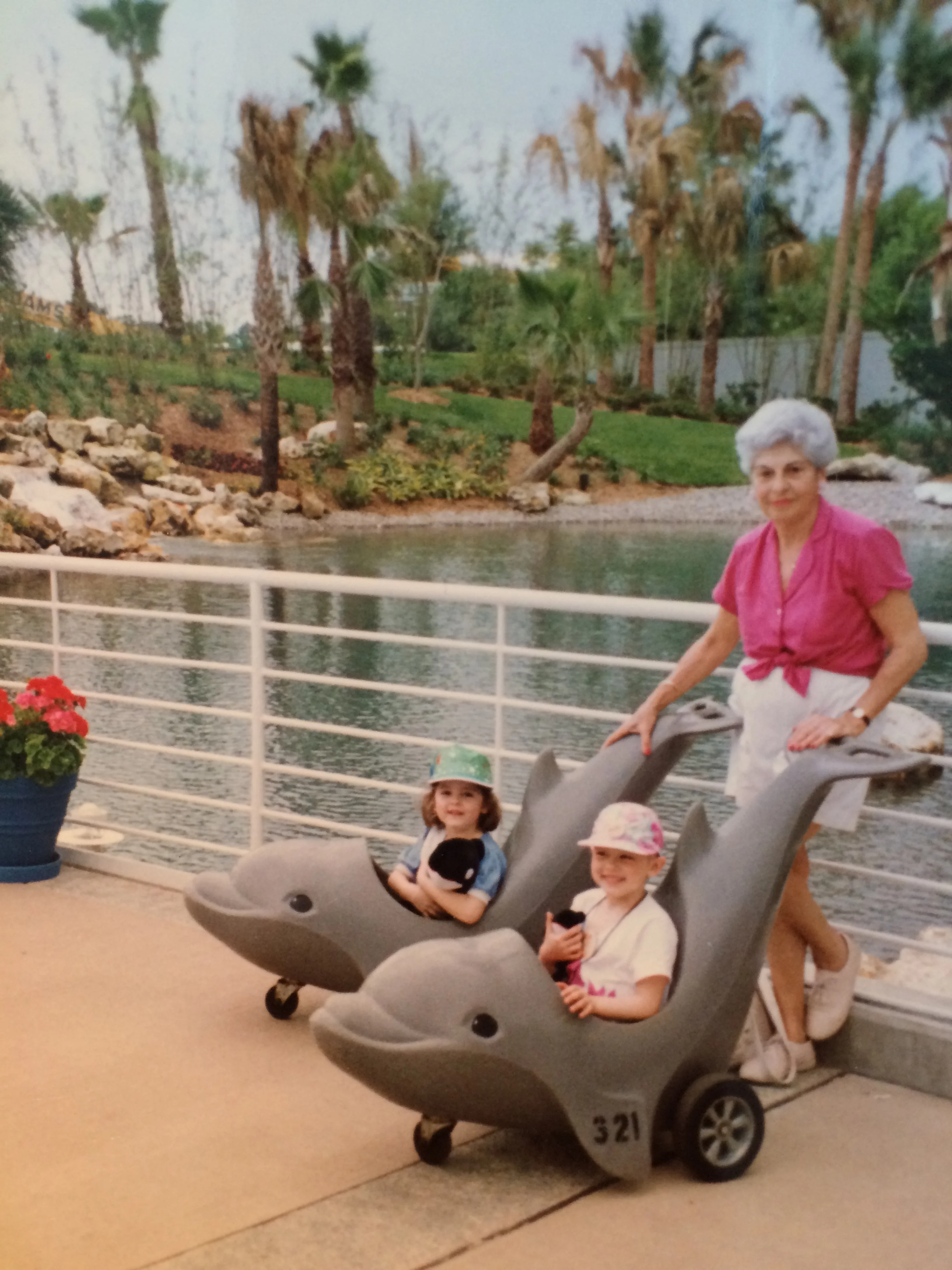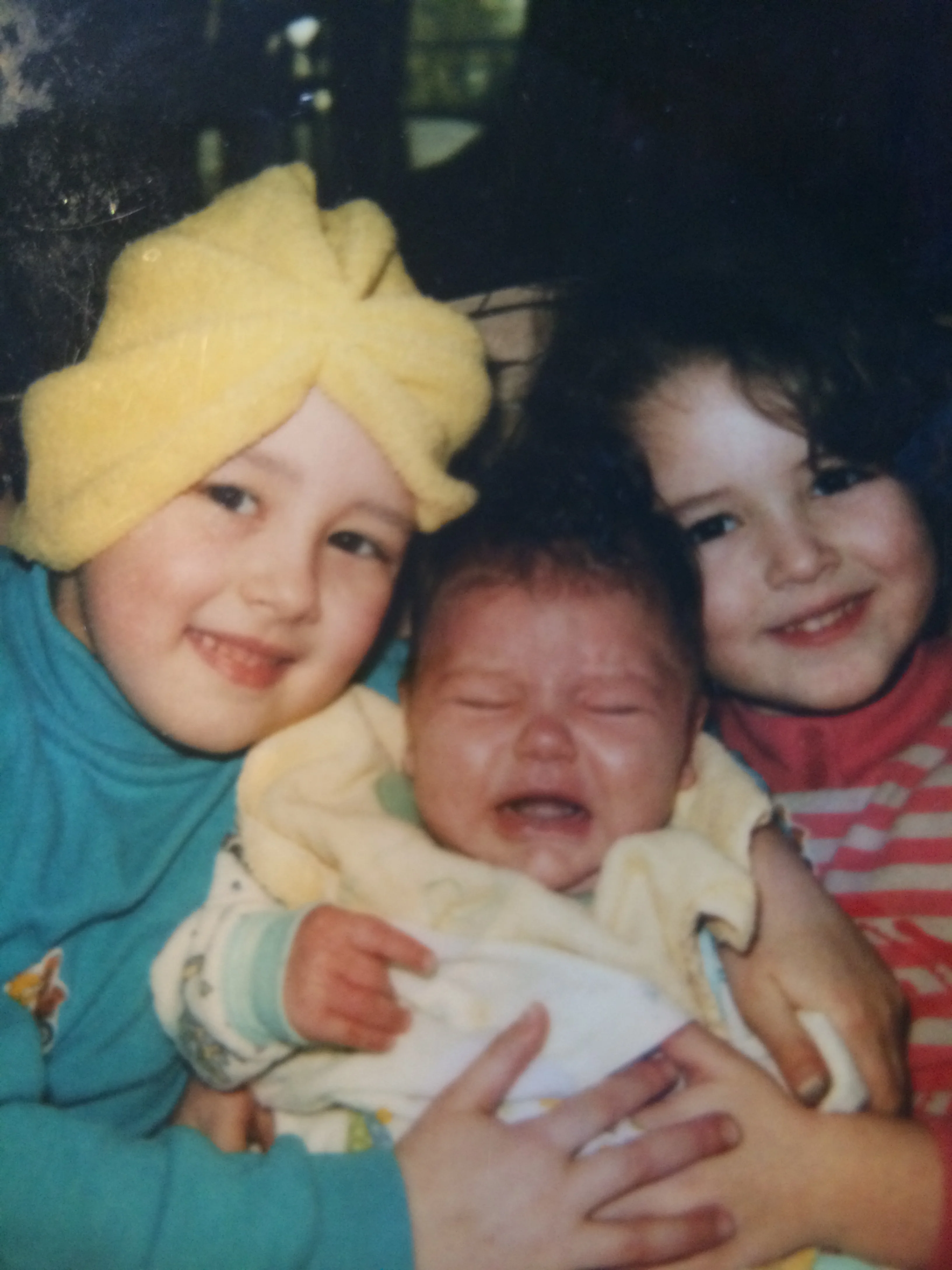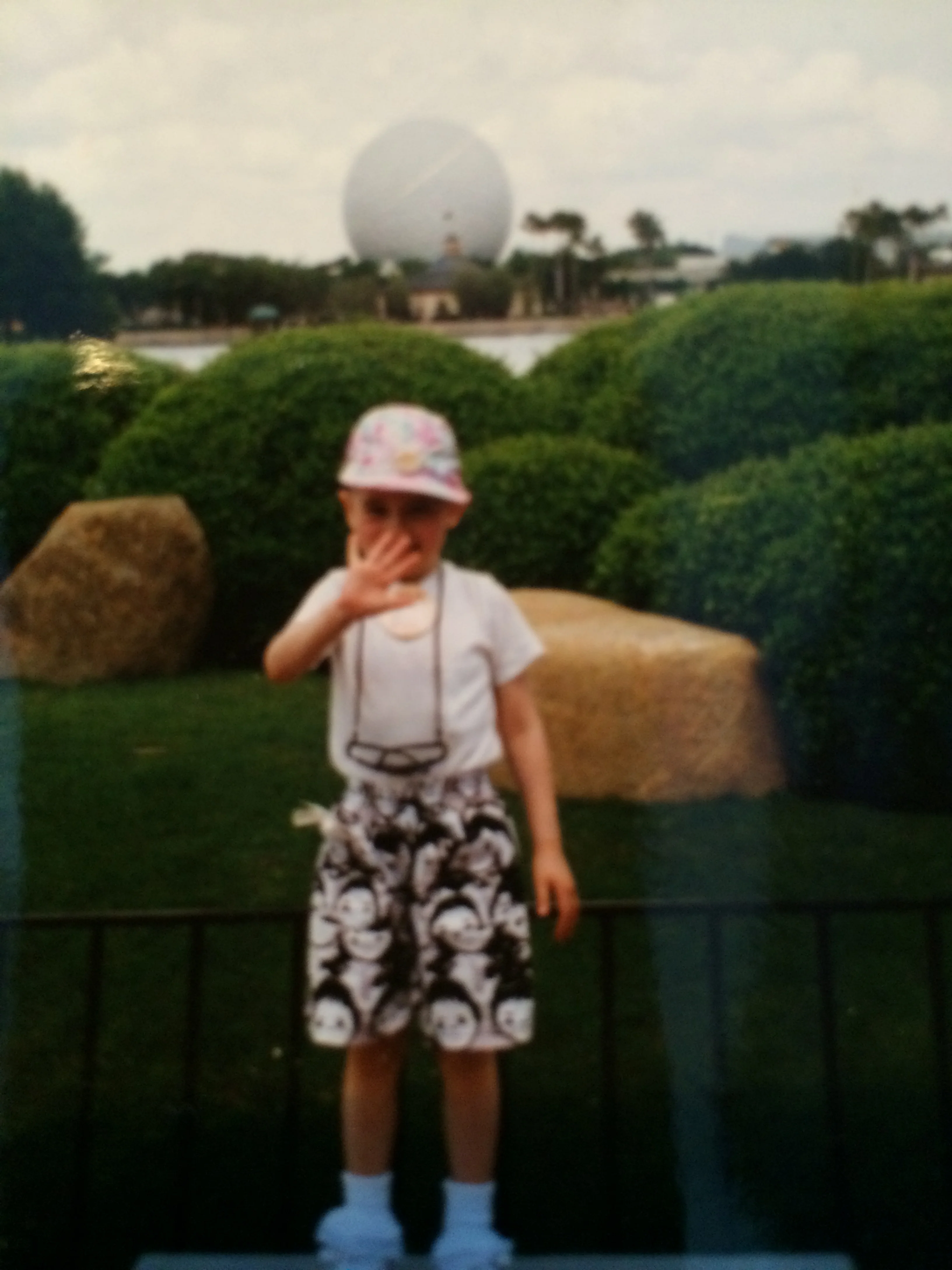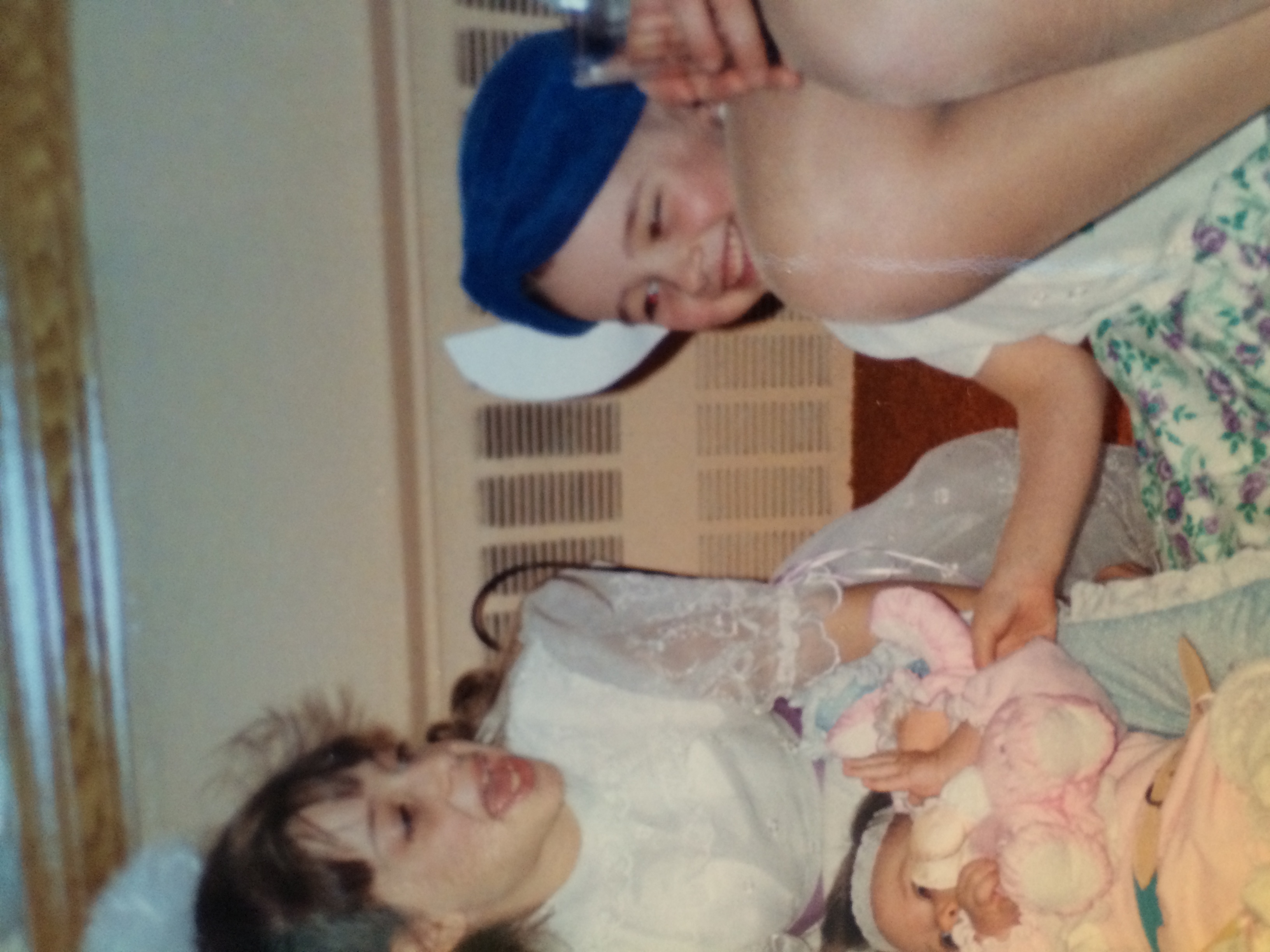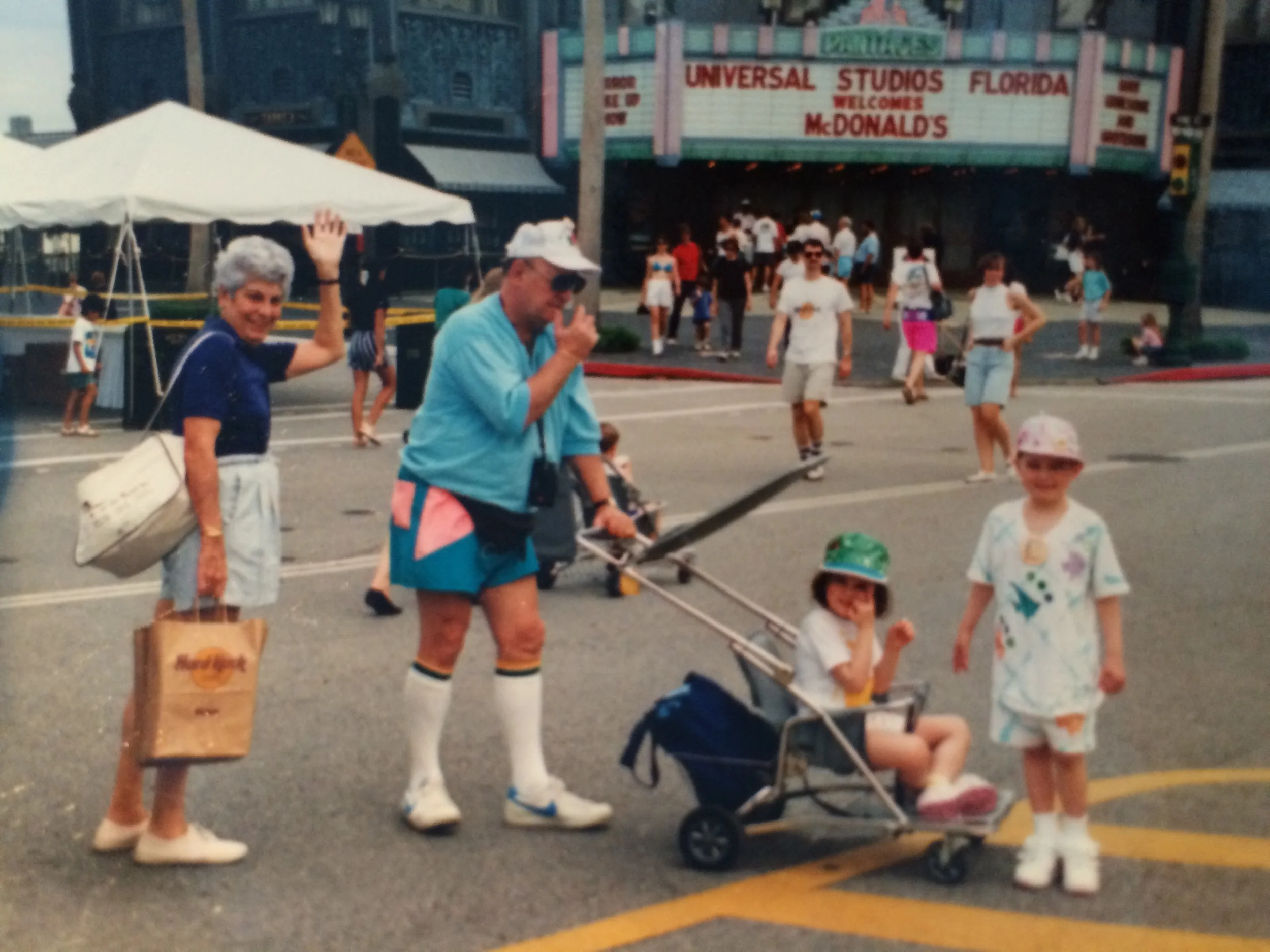Stage 3 Non-Hodgkin's Lymphoma
The summer before i was diagnosed. age 5.
When I was little, I was a super energetic kid. Always laughing, running around the house, hanging on the monkey bars, and playing with my little sister Jaime. It was the fall of 1991 and I was 5 years old when I started getting really tired. I used to love gym class, but I found myself asking the teacher if I could sit on the side while the kids played Duck Duck Goose. I was embarrassed that I kept losing because I was too tired to run. It was the only class where my grades started dropping. At the same time, I was losing my appetite and my breathing was getting worse and worse. My parents took me to the doctor but they were told it was pneumonia. I went home but eventually the breathing got so bad that I was making wheezing noises in my sleep and was losing weight from not eating.
So, we went into the doctor again. This time, they had me take an x-ray. They saw that my lungs were surrounded with fluid and I was rushed to the emergency room. I waited for 4 hours and watched my mom pace back and forth asking the doctors as many questions as she could. I was asked to leave the room when the doctors were explaining my diagnosis; Stage 3 Non-Hodgkin's Lymphoma. When it was time for me to see the doctor, I saw that everyone was crying. I remember the way my stomach turned as I saw my Grandma facing the wall with her forehead resting against it, and the tears in my father's eyes. It was weird to see all of the strongest people in my life crying without knowing why. I asked when I was going home, but the doctors said I would have to go to the hospital for a while.
Mom started journaling my experiences
The next several months of my life consisted of blood transfusions, blood tests, rounds of chemotherapy, spinal taps and hospital visits. I had long brown hair which started falling out immediately after I started taking the medicine. I couldn't go to school any more because my immune system was too weak to be exposed to anyone who might be coming down with a cold, the flu or the chicken pox. So instead, my teachers came to my house. Ironically Jaime, and my newborn sister Christina had both come down with the Chicken Pox and the doctors prepared my parents for the worst. They said that with my immune system being so weak I would soon get the pox as well and that I would have to be hospitalized immediately. Well, I never did. The doctors said it was a miracle considering how contagious the virus was. The doctors also said it would take at least 2 years of treatment but it only took 1.5. I often wondered why I was so lucky and I came up with a few possibilities...
my sixth birthday
I had the best support from my family, and my community. My mother and father learned how to deliver the chemo themselves so that I wouldn't have to keep going to the hospital. My mom made sure that I was only eating healthy food, dad always made me feel calm, and my sister Jaime was by my side making me laugh every step of the way. My cousins, aunts, uncles, and grandparents would visit me in the hospital and take turns staying with me overnight. My class at school was constantly sending me gifts that they all helped make, like a quilt with a patch made by every student. The Make-A-Wish Foundation came to my house too. I told them my wish was to fly like a bird ;). They said that was one of the few wishes they couldn't grant so I got to go to Disney World instead. I was okay with that especially since I got to have breakfast every day with a new character and cut all the lines.
My hair started growing back before I knew it, and I had gotten so much positive attention throughout my treatment that I never felt alone. I never cried during any of my doctor visits, and I never questioned whether or not I would be okay. I was just a kid, living life, taking it one day at a time. I wasn't consumed by the "what ifs" that enter our minds as adults. My mind and spirit were still strong and I was able to see things for face value.
my hair just started growing back
It wasn't until I was in my teenage years that I started to reflect upon my experience. At age 15, I was asked to give a keynote speech on behalf of the Children's Cancer Research Foundation to provide inspiration to the families and kids who were still dealing with their illness. Having a reason to think back on the experience gave me the opportunity to realize how grateful I was to have survived. I started thinking about how lucky I was to have grown up with such a great family, and to be supported by such a great community. I knew that my survival wasn't something that was to be taken lightly. I knew that others weren't so lucky and that my speech was important in order to give more kids hope.
The speech was the first of many opportunities I had to reflect upon my cancer experience. In fact, since then, I've deliberately looked for ways I can be reminded of it. I say this because it's easy to go through life without realizing how precious it is. It's easy to get caught up in the automatic-ness of it, and to let it go by without noticing what an amazing thing it is to be alive.
This is why I do what I do now. Having cancer made me become obsessed with living my best life. I want to see and experience everything. And I have been fortunate enough to have almost everything that I want. But the only thing that still drives me crazy is that I'm the minority. Most people who are diagnosed with cancer, or any illness, don't have as many things working in their favor as I did. And I believe a big part of why we aren't able fight cancer fast enough is because we focus too much on our physical health and not enough on the power of our mind, our relationships, and our careers. These are the things that give us the will to live, and to keep moving during the tough times. We need to be aware of all things that improve our quality of life, and affect our state of consciousness.
Our well-being extends far beyond the food we eat and the amount we exercise.
I've also traveled to places around the world that leave me in shock. I've been brought to tears on countless occasions realizing that out of 7 billion people on the planet, I was given so much, and there are many people who are suffering. There are people who are suffering because they don't have enough food or water, and others who have all their basic needs met and yet they suffer because they don't enjoy their work and they don't feel their life has purpose.
It doesn't need to be this way. And it doesn't need to take a crucible moment for us to wake-up and live the way we want to.
In order to affect many lives, I have concluded that working within organizations are the way to do so because this is where the majority of our lives take place. There needs to be a greater focus from organizations and leaders on elevating quality of life. The quality of people's lives is heavily influenced by their place of work, and the kind of work they do each day. There is an enormous amount of human potential lying dormant in the nooks and crannies of companies and countries since the majority of them are not living their best life. Therefore, every organization must realize the crucial role that they play in impacting millions of lives around the world. And, as it turns out, caring about people's lives is good for business. There is no down side.
If, in life, we refuse to settle, and if we demand the best lives for ourselves and for the people around us, we will feel we made the most of the short time we have to be alive.









